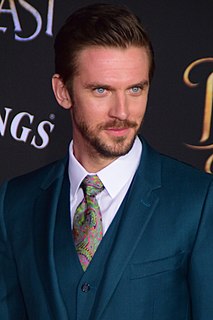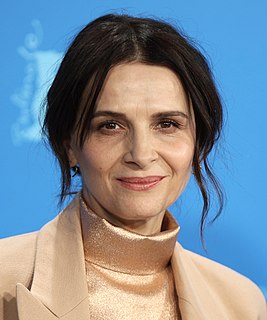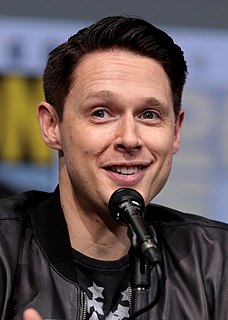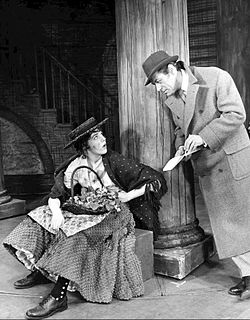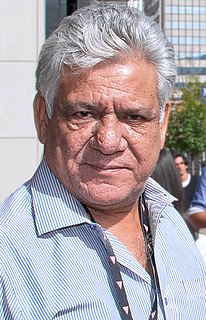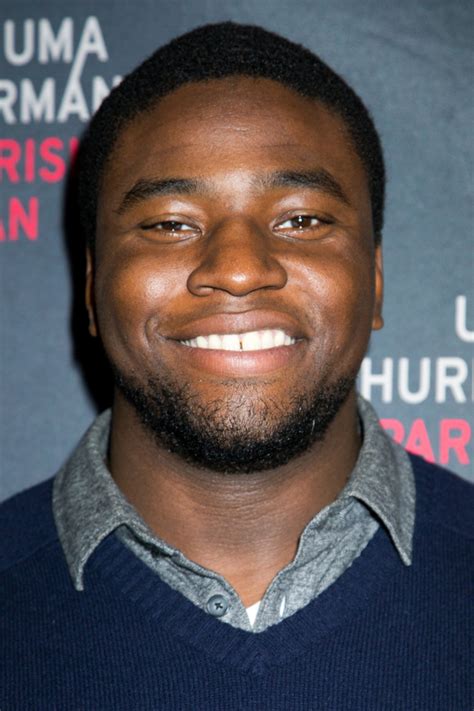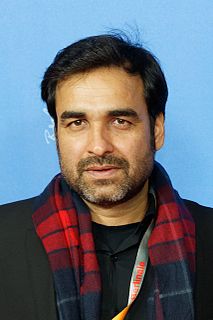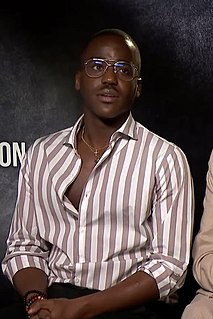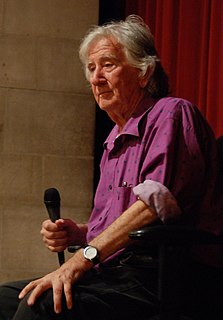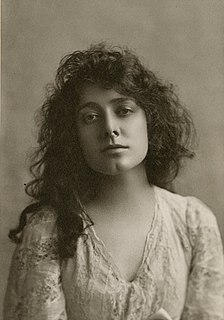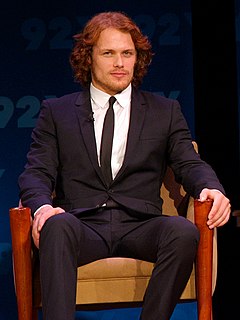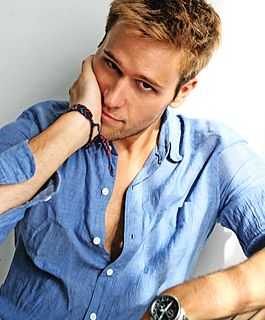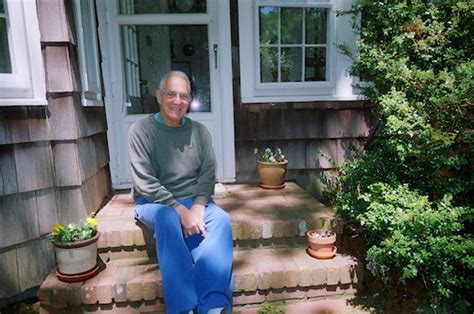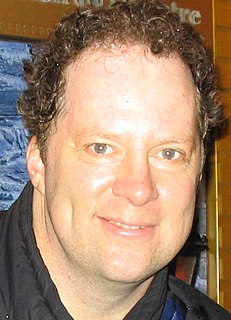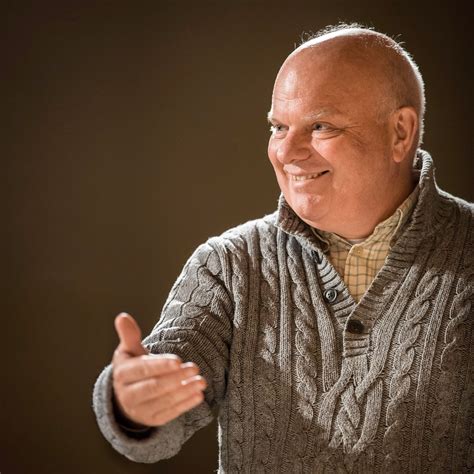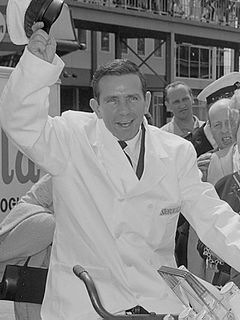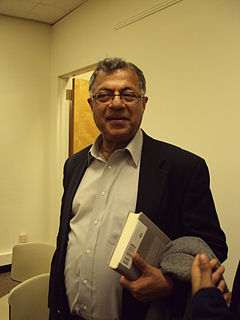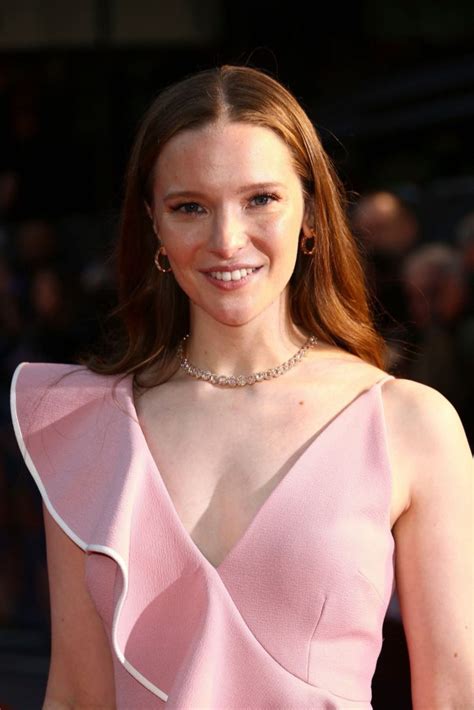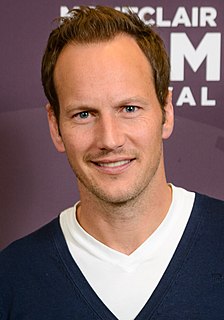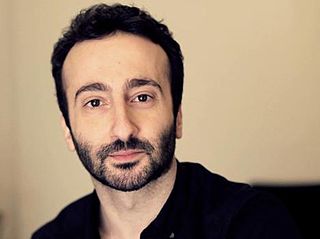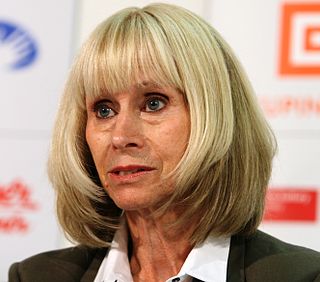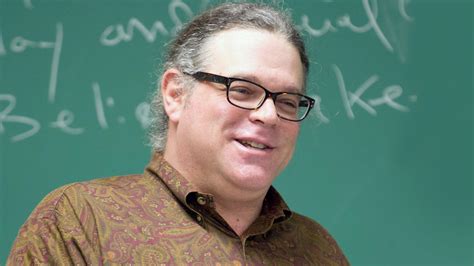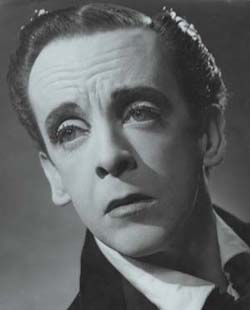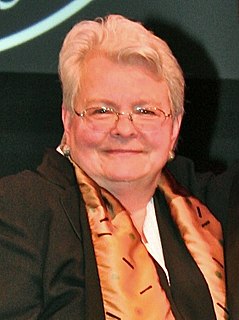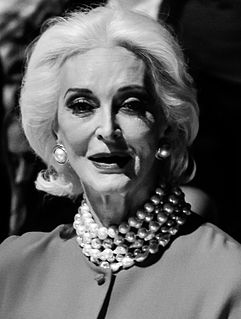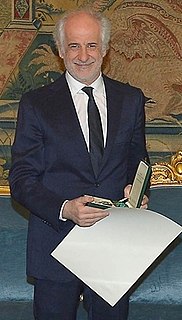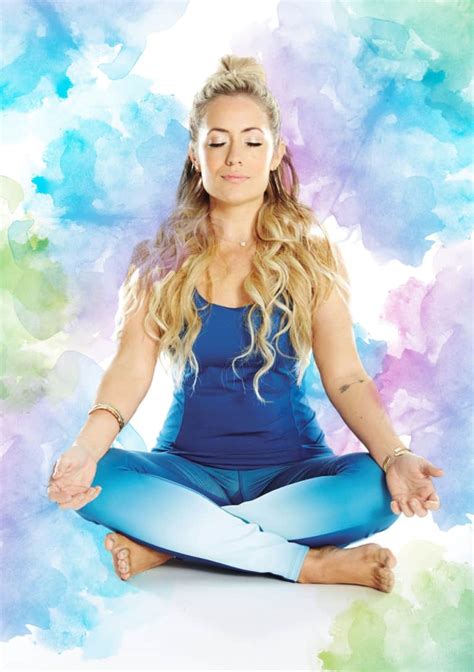Top 1200 Theatre Quotes & Sayings - Page 5
Explore popular Theatre quotes.
Last updated on December 18, 2024.
I haven't done as many films as I would have liked. A lot of my contemporaries have done more. I don't have 'I will be a movie star' emblazoned on anything, but I'd like do a bit more screen stuff and then when the time is right come back to theatre. When it is good, theatre takes a lot of beating both to watch and perform.
I can go into New York and sell out a theatre, but I didn't have to fight my way to get there: I was already a made man from television. I sold out a theatre in London without any TV exposure, just word of mouth and being a good comic, and that was a much bigger sense of accomplishment than just being a guy from telly.
I hope it's always going to be a mix between theatre, film and radio. I've been very lucky living in London that you can do all that - in New York and L.A., there's more of a structure for film in L.A. and theatre in New York. In London, our industry is smaller, but it produces brilliant work all in one place.
An actor and a [theatre] director are both what I would call interpreters of work. We interpret a work, just as a musician will interpret a composer's work, we interpret the work of a playwright. We are servants of the theatre and I've always believed that. We must serve what has been written, that's what we're there for.
I did try theatre out when I was little. I did roles as a child actress. My parents didn't push me into it. But I was up for it. I didn't enjoy doing eight shows a week, though. That repetitiveness didn't appeal to me. I love doing something different every day and travelling. You can't do that in the theatre.
I think the genre of musical theatre, when it started, the pop songwriters of the time were writing the music. I think sometimes when we write musicals now, we keep writing in that same style, as though that's the musical theatre genre... We have to figure out how to tell stories with the music that we listen to now, or we'll lose our audience.
I love the theatre and I love working in the theatre but I'm a big cinefile and I love the movies. I also do scribble but to limited success! I think I find being in a room on my own quite hard, which I think a lot of actors do because what we do is so inter-active. It's a very supportive profession... despite its reputation for being highly competitive it's actually one of the most collaborative professions you can do in the arts because you're always working in a team.
All drama teachers are very effusive, very emotionally open, very big, and gesticulate a lot, and are very physical. Those people don't work in banks and they don't work for pharmaceutical companies. They teach drama, or they may be theatre directors. That's why I love people who are openly gay in theatre, because they have license to do what they like, and there's a kind of artistic liberal tolerance thing that goes on.
Maybe six months out of drama school, I was working at the Dundee Rep Theatre, I worked there for about a year, and I had an audition for the National Theatre of Scotland. I went into the audition room and when I came out I realized my fly was undone. I did this whole dramatic speech with my fly hanging low.
When does a session of The Theatre of the Oppressed end? Never - since the objective is not to close a cycle, to generate a catharsis, or to end a development. On the contrary, its objective is to encourage autonomous activity, to set a process in motion, to stimulate transformative creativity, to change spectators into protagonists. And it is precisely for these reasons that the Theatre of the Oppressed should be the initiator of changes the culmination of which is not the aesthetic phenomenon but real life.
The requirements of the theatre are very great--a strong constitution, energy and unflagging purpose, charm of feature, these alone do not necessarily mean anything, and they must not be relied upon as assurances of an easy conquest of the public heart. It is not only a question of fitness for the work, but of long years of most diligent effort to master the technique of the theatre, and to develop whatever of the art instinct we may possess upon the simplest, broadest, and most human lines.
Theatre, when it is at its best, takes a lot of beating - the live experience and the shared collective experience of live storytelling is really special when it is good. Particularly here in New York because the audiences are amazing, very vocal and very engaged, and that makes theatre very exciting.
Only in the theatre was it possible to see the performers and to be warmed by their personal charm, to respond to their efforts and to feel their response to the applause and appreciative laughter of the audience. It had an intimate quality; audience and actors conspired to make a little oasis of happiness and mirth within the walls of the theatre. Try as we will, we cannot be intimate with a shadow on a screen, nor a voice from a box.
I went to school to play sports, but I got involved in theatre in college kind of by mistake. I ended up taking an acting class almost just to get rid of an arts requirement, but I wound up in this wonderful acting class with this teacher named Alma Becker who really saved my life. I was just kind of this knucklehead kid from DC and I was in and out of trouble all of the time. I took a theatre class and she really discovered something in me and I absolutely fell in love with it.
Theatre has been a sort of hobby. I regret that I am not active, but given my job that is difficult. But those were learning days. The learning curve was the level of confidence, maturity, and reflexes that theatre teaches you is fantastic. You are alone in front of an audience for two hours and that gives you a different kind of confidence.
How to you teach someone that a theatre comes about first as an idea, from an individual who has a philosophy and a passion? That a theatre's idea is its heart and individual soul? That the person who creates it must have the desire not only to create work, but also to create the conditions in which that work can live-and in which others can do it as well? How do you teach someone to want to be a midwife as well as a mother.
I'm probably only going to make 10 movies, so I'm already planning on what I'm going to do after that. That's why I'm counting them. I have two more left. I want to stop at a certain point. What I want to do, basically, is I want to write novels, and I want to write theatre, and I want to direct theatre.
Feudal societies don't create great cinema; we have great theatre. The egalitarian societies create great cinema. The Americans, the French. Because equality is sort of what the cinema deals with. It deals with stories which don't fall into 'Everybody in their place and who's who,' and all that. But the theatre's full of that.
If every auditorium were razed to the ground, theatre would still survive, because the hunger in each of us to act and be acted to, is genetic. This intense hunger even crosses the threshold of sleep. For we direct, perform and witness performances every night - theatre cannot die before the last dream has been dreamt.
The world has never before had as much drama as today. Radio, films, television and video inundate us with drama. But while these forms can engage or even enrage the audience, in none of them can the viewer’s response alter the artistic event itselfThat is why theatre is signing its own death warrant when it tries to play too safe. On the other hand, that is also the reason why, although its future often seems bleak, theatre will continue to live and to provoke.
I was always far more into anything creative that called for a bit of active participation, like reading aloud in class. Then, having left school shortly after my GCSEs, I auditioned for the National Youth Theatre of Wales and the National Youth Theatre of Great Britain as well as the Welsh National Youth Opera. I ended up getting into all three.
It's very hard to just break into movies. I always felt like it would be giving up a theatre career to go and try and be in movies. So, I thought I'd exhaust the theatre thing, go as far as I can, and originate roles, be on Broadway, maybe win some Tony Awards, and then hopefully some door would open. Luckily, it did.
Theatre has nothing to do with buildings or other physical constructions. Theatre - or theatricality - is the capacity, this human property which allows man to observe himself in action, in activity. Man can see himself in the act of seeing, in the act of acting, in the act of feeling, the act of thinking. Feel himself feeling, think himself thinking.
I feel like people used to leave their homes and go to their local theatre, and they used to watch ballet dancers and musical theatre performers and tap dancers and orchestras and dog acts. You had to leave your home, be in the presence of other people, know how to behave, and enjoy the human being whose beating heart was in front of you.
When people ask me if musical theatre should be taught in music colleges, I reply that there is no need. All anyone needs to study is the second act of La Boheme because it is the most tightly constructed piece of musical theatre that there is. It is practically director-proof: you can't stage it badly because it just works too well. If you can write La Boheme, you can write anything. I would also recommend studying Britten's Peter Grimes.
More than one branch of the avant-garde, claiming to break with the bourgeois vision and mode of production, remains tied to it in spite of its denials and ex-communications. We are far from having overcome bourgeois thought or practices, despite the socialist "intermission" between the Russian revolution and the collapse of the Berlin wall. The avant-garde has lost its radical nature. On the other hand, "bourgeois theatre" is sometimes subtle enough to flirt with the avant-garde or to make "intelligent boulevard theatre.
If you want to get into the shoes of someone, it's not just about seeing and hearing. It is also about what you touch and what you smell. Smell is so specific and so powerful. And this is the beauty of immersive theatre - it's something you cannot get in any other art form. I think this is the real future for theatre.
To move from a discussion of the early relationship between theatre and television to an examination of the current situation of live performance is to confront the irony that whereas television initially sought to replicate and, implicitly, to replace live theatre, live performance itself has developed since that time toward the replication of the discourse of mediatization.
I believe this thought, of the possibility of death - if calmly realised, and steadily faced would be one of the best possible tests as to our going to any scene of amusement being right or wrong. If the thought of sudden death acquires, for you, a special horror when imagined as happening in a theatre, then be very sure the theatre is harmful for you, however harmless it may be for others; and that you are incurring a deadly peril in going.
The Theatre of Cruelty has been created in order to restore to the theatre a passionate and convulsive conception of life, and it is in this sense of violent rigour and extreme condensation of scenic elements that the cruelty on which it is based must be understood. This cruelty, which will be bloody when necessary but not systematically so, can thus be identified with a kind of severe moral purity which is not afraid to pay life the price it must be paid.
Theatre remains the only thing I understand. It is in the community of theatre that I have my being. In spite of jealousies and fears, emotional conflicts and human tensions; in spite of the penalty of success and the dread of failure; in spite of tears and feverish gaiety this is the only life I know. It is the life I love.
I want to seduce the audience. If they can go along for a ride they wouldn't ordinarily take, or don't even know they're taking, then they might see highly charged political issues in a new and unexpected way. . . . The theatre is now so afraid to face its social demons that we've given that responsibility over to film. But it will always be harder to deal with certain issues in the theatre. The live event - being watched by people as we watch - makes it seem all the more dangerous.
The minute we don't finance the arts, the accountants, attorneys and politicians keep taking the cream of money off the top and it doesn't trickle down unless all of society understands that we must support the arts, whether it's ballet, opera, fashion. Fashion is like opera, is like ballet, is like theatre. It's a visual theatre.
Movies are not scripts - movies are films; they're not books, they're not the theatre. It's a completely different discipline, it exists on its own. I would say that the beauty of it is it's not the theatre, it's not done over again. It's done in bits and pieces. Things are happening which you can't get again. I forbid anyone to say "Cut", the soundman, the operator, or whatever.
Theatre is organic, film is not. Theatre you come every day and you work with a group of people and you're are all up for it and you all get to do the whole thing every night, be it two hours or three hours. In film you work in two or three minute bits and it's never in chronological order and then someone takes that away and makes it look like it all happened, or that you gave that performance.
I was going to be a High School teacher. I was studying at the University of Alberta in Edmonton, up in Canada. I was also acting in a wonderfully supportive theatre community in Edmonton. There's a lot of support for theatre there. So, I was having a great time, but I didn't consider acting as a serious career initially, because even the most successful actors that I know in Edmonton are not super successful. Acting over there is just not a success-oriented career.
I was a tomboy growing up and then fell into the world of theatre and musical theatre. A girlfriend introduced me to yoga in college and I was hooked. I didn't really know anything about it except that it was the highlight of my week. I ended up graduating from the University of Virginia and moving to Los Angeles where I could continue acting and do a yoga teacher training. I went from practicing once or twice a week to several hours everyday. I loved it.

